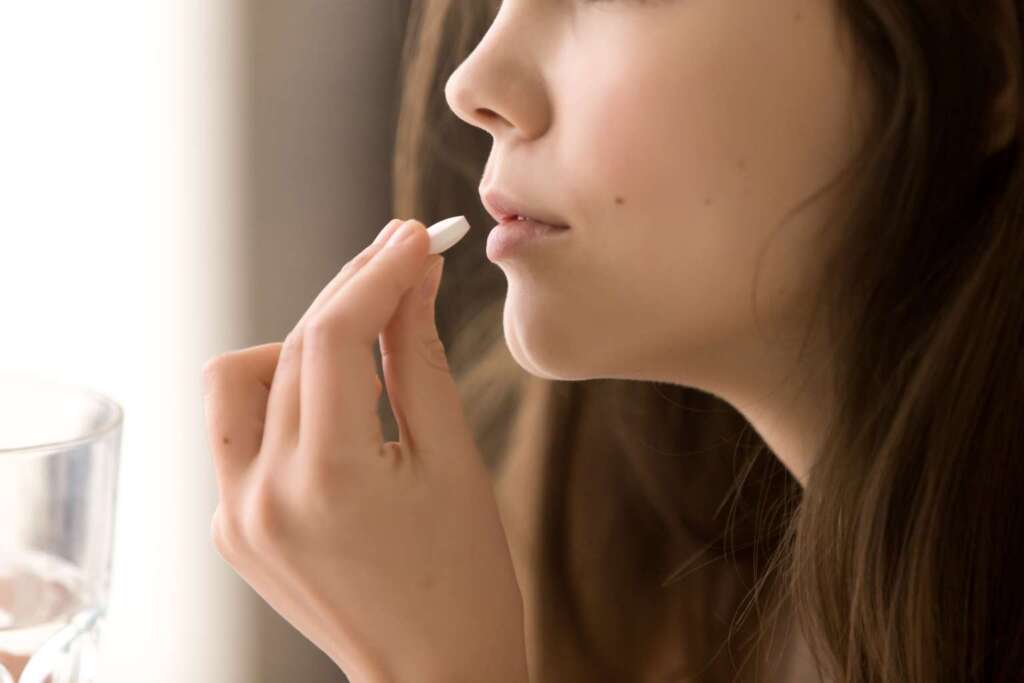“PCOD, PCOS, And Acne: Decoding The Skin-Metabolism”


PCOD, PCOS, and acne form a complex trio with intertwined connections. This article explores the interplay between these conditions, highlighting their impact on skin health and effective management strategies.
Polycystic Ovary Syndrome (PCOS) and its milder form, Polycystic Ovarian Disease (PCOD), are hormonal disorders that affect reproductive health. It also has a significant impact on a woman’s skin, particularly in the form of acne. The hormonal imbalances associated with PCOS and PCOD, such as elevated levels of androgens, can lead to excessive sebum production and inflammation. This in turn results in persistent and often severe acne. This skin condition can be a source of physical discomfort and emotional distress, impacting a woman’s quality of life. In this article, we look into the complex relationship between PCOS, PCOD, and acne. We will also explore the underlying hormonal causes, the impact on skin health, and the various treatment options available. Understanding this connection is crucial. It helps in managing the skin manifestations of these disorders and improving overall well-being.
1. Understanding PCOD and PCOS
a. Defining PCOD and PCOS
Polycystic Ovary Syndrome (PCOS) and Polycystic Ovary Disorder (PCOD) are endocrine disorders affecting reproductive-aged individuals. PCOD involves enlarged ovaries with small cysts, while PCOS includes a broader range of symptoms, including hormonal imbalances and metabolic issues.
b. Hormonal Imbalances
Both PCOD and PCOS involve hormonal imbalances, particularly elevated androgens like testosterone. These imbalances can trigger excessive oil production, leading to acne development.
Also read: The Link Between Your Hormone Levels And Fertility
2. The Skin-Metabolism Connection
a. Impact on Skin Health
The hormonal shifts in PCOD and PCOS contribute to increased sebum production, clogged pores, and inflammation. These factors create an environment ideal for acne development, affecting the face and the chest, back, and other body areas.
b. Insulin Resistance and Inflammation
Insulin resistance is a common feature of PCOD and PCOS. Elevated insulin levels can stimulate androgen production, triggering hormonal imbalances and inflammation. This, in turn, intensifies the likelihood and severity of acne.
3. Navigating Acne in PCOD and PCOS
a. Identifying Acne Types
Acne in PCOD and PCOS may manifest as hormonal acne, characterized by deep, painful cysts, or as comedonal acne, involving blackheads and whiteheads. Identifying the type is crucial for tailored management.
b. Holistic Skincare Approaches
Effective skincare involves a holistic approach. Gentle cleansers, non-comedogenic moisturizers, and targeted treatments like retinoids can help manage acne. Consulting a dermatologist ensures personalized care.
4. Lifestyle Factors and Acne Management
a. Diet and Nutrition
Diet plays a crucial role in managing PCOD, PCOS, and acne. A low-glycemic diet, rich in antioxidants and omega-3 fatty acids, can help regulate insulin levels and reduce inflammation, positively impacting skin health.
b. Exercise and Stress Management
Regular exercise supports hormonal balance and reduces stress, a known trigger for acne flare-ups. Stress management techniques, such as meditation or yoga, complement acne management strategies.
Also read: The Role of Lifestyle Changes in Managing PCOD and PCOS
5. Medical Interventions for Acne and Hormonal Balance
a. Topical and Oral Medications
Dermatologists may prescribe topical treatments like benzoyl peroxide or oral medications such as antibiotics or hormonal contraceptives to manage acne. These interventions aim to address both the symptoms and underlying hormonal imbalances.
b. Anti-Androgen Medications
For more severe cases, anti-androgen medications like spironolactone may be recommended. These drugs help regulate androgen levels, reducing the impact on sebum production and acne development.
6. PCOD and PCOS Management Strategies
a. Hormonal Contraceptives
Oral contraceptives are commonly prescribed to regulate menstrual cycles and hormones in PCOD and PCOS. Besides preventing pregnancy, they can manage acne by stabilizing hormonal fluctuations.
b. Metformin for Metabolic Control
Metformin, an insulin-sensitizing medication, is often prescribed to manage insulin resistance in PCOD and PCOS. Addressing metabolic issues indirectly contributes to acne management.
7. Natural Remedies and Complementary Therapies
a. Herbal Supplements
Some individuals find relief in herbal supplements like spearmint tea or saw palmetto, which are believed to have anti-androgenic properties. However, it is essential to consult doctors before including these into the routine.
b. Acupuncture and Acupressure
Alternative therapies like acupuncture or acupressure may assist in managing hormonal imbalances and reducing stress. They contribute to overall well-being, including skin health.
Also read: Natural Approaches: Alternative Treatments For PCOD And PCOS
The connection between PCOD, PCOS, and acne underscores the importance of a comprehensive approach to health. By understanding the complex interplay, individuals can tailor skincare routines, and lifestyle changes, and explore medical interventions to empower their skin health while managing PCOD and PCOS.



